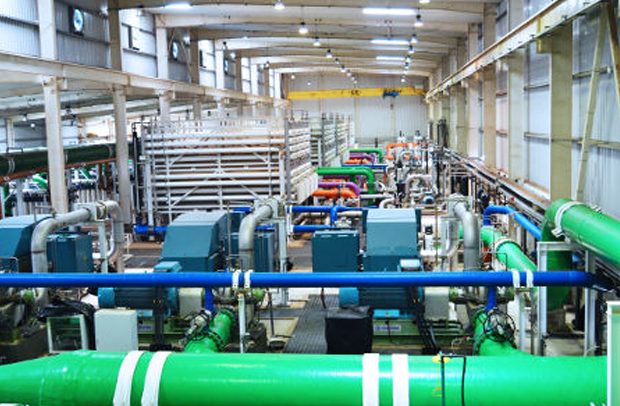Accra Desalination Plant
Management of Ghana Water Company Limited (GWCL) has served notice of shutting down the Accra Desalination Plant that supplies water to Teshie, Nungua and other surrounding communities in the Greater Accra Region.
According to the GWCL, the decision has become necessary due to challenges associated with the management of the plant, which has resulted in an erratic supply of water to the beneficiary communities.
A statement signed by the Head of Communications of GWCL, Stanley Martey, said Teshie, Nungua and other communities which are served by the plant would be put on alternative sources on rationing basis.
The affected areas are Teshie, Nungua, Sakumuno, Laashibi, Communities 16, 17, and 18, Adogorno, Baatsonaa, Coastal Estates, Greda Estates, Regimanuel Estates – all along the Spintex Road – and surrounding communities.
The statement indicated that effective January 1, 2018, the affected communities “will be served on Wednesdays and on weekends (Fridays to Sundays) from the alternative sources.”
It said management of the company was taking adequate steps to resolve the issues and pleaded with its customers to bear with his outfit.
“Management of GWCL regrets any inconvenience that this arrangement may cause to our cherished customers. It’s for a good purpose,” Mr Stanley Martey said.
The Accra Desalination Plant was commissioned in April 2015 under President Mahama’s erstwhile National Democratic Congress (NDC) administration, to process sea water into potable water for residents of the afore-mentioned areas.
The plant has been described by the Minister of Sanitation, Joseph Kofi Adda, as a ‘white elephant’ due to chronic challenges facing its operations.
Ghana Water Company claims that it is incurring hefty losses in operating the plant while the private firm contracted to operate it is raking in more profit.
The situation has forced the Public Utility Workers’ Union of the Trades Union Congress (TUC) to call on the government to revise the contract signed with the private firm (Messrs Befessa), which requires the GWCL to pay the capacity charge of US$ 1.4 million per month to the firm.
This charge is payable, whether the plant is working or not.
Again, GWCL is obliged to pay the electricity bills of the desalination plant which stands at an average of GH¢3 million per month (for 2017).
Meanwhile, former Deputy Minister of Water Resources, Works and Housing in the Mahama-led administration, Sampson Ahi, has indicated that Ghana Water Company Limited should be blamed for the poor state of the Teshie water processing plant.
Speaking to Joy FM, he said the plant was also built to distribute water to industries in Tema for a hefty fee and not just the local domestic consumers, but the water company took no steps to that effect.
BY Gibril Abdul Razak


